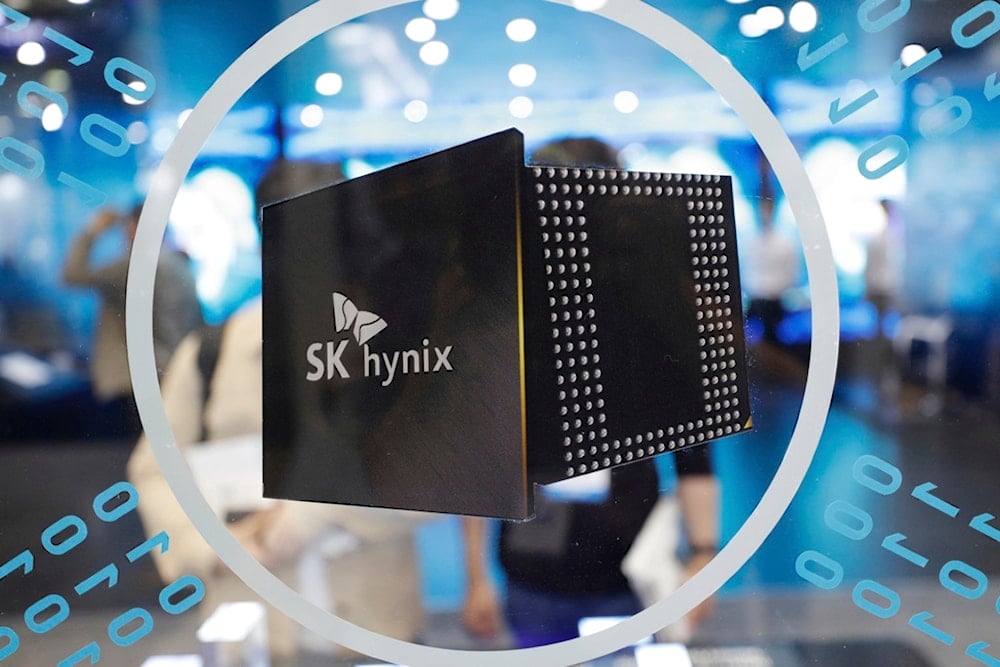South Korea warns US chip tariffs threaten economy, global supply
South Korea has voiced strong opposition to impending US semiconductor tariffs, warning they could harm its export-driven economy, disrupt global supply chains, and reflect a broader shift toward protectionist trade policies under Section 232.
-

FILE - A logo of SK Hynix is seen at Korea Electronics Show in Seoul, South Korea, on October 8, 2019. (AP Photo/Lee Jin-man, File)
A Bloomberg report on Monday revealed that South Korea is raising urgent concerns over forthcoming US tariffs on semiconductors, an industry that forms the backbone of its export economy. Trade Minister Yeo Han-koo warned that the planned duties, expected to take effect on August 1, could deal a severe blow to national champions like Samsung Electronics and SK Hynix and potentially disrupt global supply chains.
"We plan to hold extensive consultations with relevant ministries, stakeholders, and the National Assembly to develop a well-prepared proposal, particularly regarding non-tariff barriers and related issues," Yeo stated, adding that another trip to Washington is planned before the deadline.
Chip tensions
The semiconductor industry is central to South Korea's economy, accounting for over 19% of its total exports and serving as a key growth driver. According to Bloomberg, Companies like Samsung and SK Hynix together control more than 60% of the global memory chip market, making them vital not just to Korea's economy but to worldwide tech manufacturing. Seoul views the proposed US sectoral tariffs as a direct threat to this strategic industry.
The Biden and Trump administrations have both leaned on Section 232 of the Trade Expansion Act, a mechanism originally intended for national security, to justify imposing duties on foreign chipmakers. While officially framed as a move to reduce reliance on overseas supply chains and bolster domestic production, critics argue that the tariffs have a strong protectionist undertone aimed at weakening foreign competitors and reshoring chip manufacturing.
Read more: South Korea plans $4.9bln chip support amid US tariff concerns
Moreover, Yeo, who recently returned from a visit to Washington, described the negotiations as progressing toward a "landing zone" but warned that any final deal must consider the implications of sector-specific measures targeting semiconductors.
According to Bloomberg, he reiterated Seoul's broader goal of reducing existing tariffs on industries such as automobiles and steel, insisting that a comprehensive trade pact is essential to avoid damaging both countries' economies.
Tariff uncertainty
With exports comprising more than 40% of South Korea's GDP, the stakes are high, according to Bloomberg, adding that Yeo emphasized that his government is pursuing a long-term arrangement to ensure predictability and reduce exposure to what he called Washington's "unpredictable use of tariffs."
"South Korea is not alone, and many countries face similar risks from Washington's unpredictable use of tariffs, which have become a key US policy lever under President Donald Trump," he said.
Talks have also touched on agricultural trade, another politically sensitive issue. Yeo acknowledged growing US pressure to open South Korean markets further but cautioned, "There is no such thing as a painless agricultural negotiation," signaling that difficult trade-offs may lie ahead.
As the August 1 deadline approaches, Seoul remains focused on striking a deal that preserves its core economic interests while navigating a shifting US trade policy landscape increasingly shaped by industrial competition and geostrategic considerations.

 3 Min Read
3 Min Read










